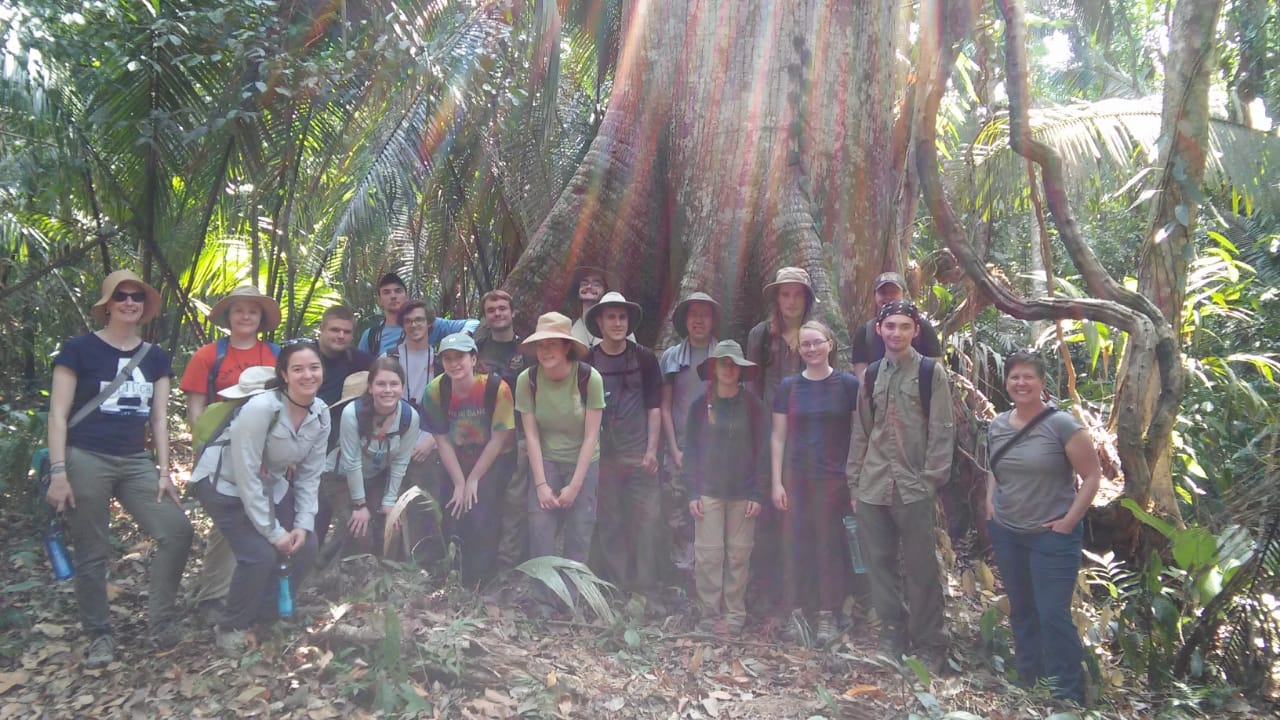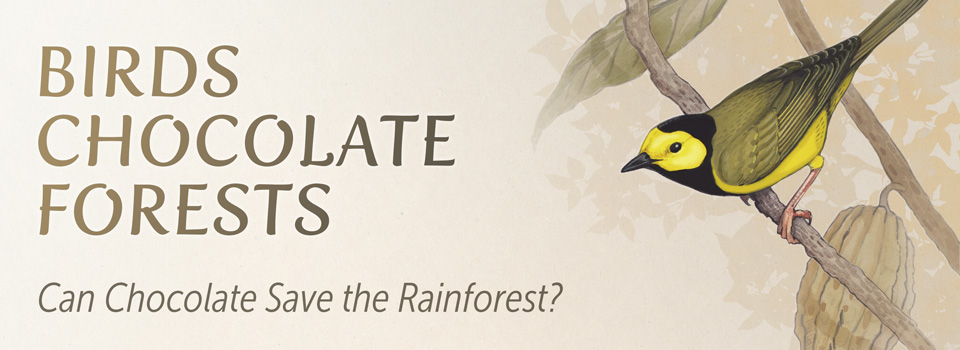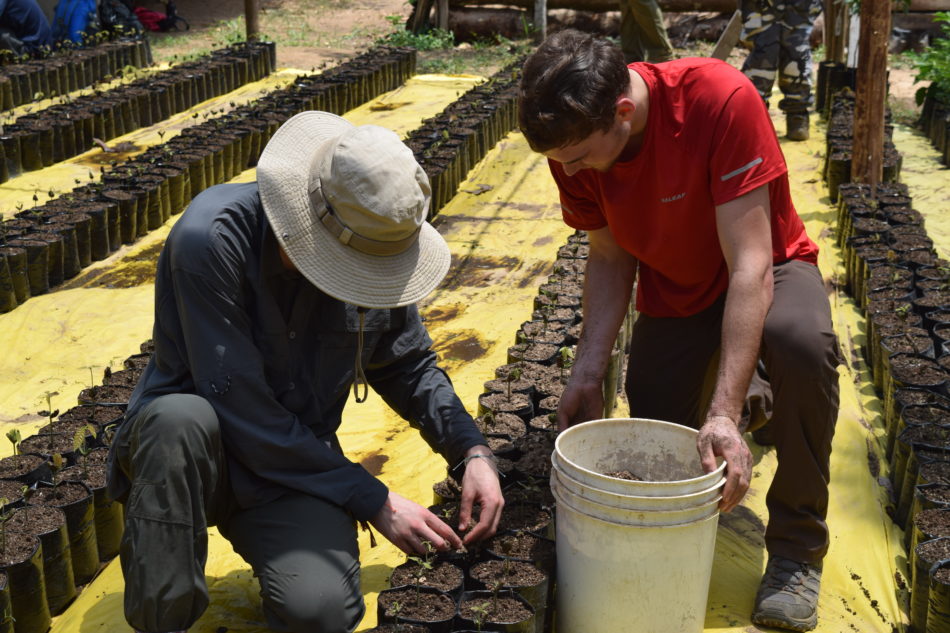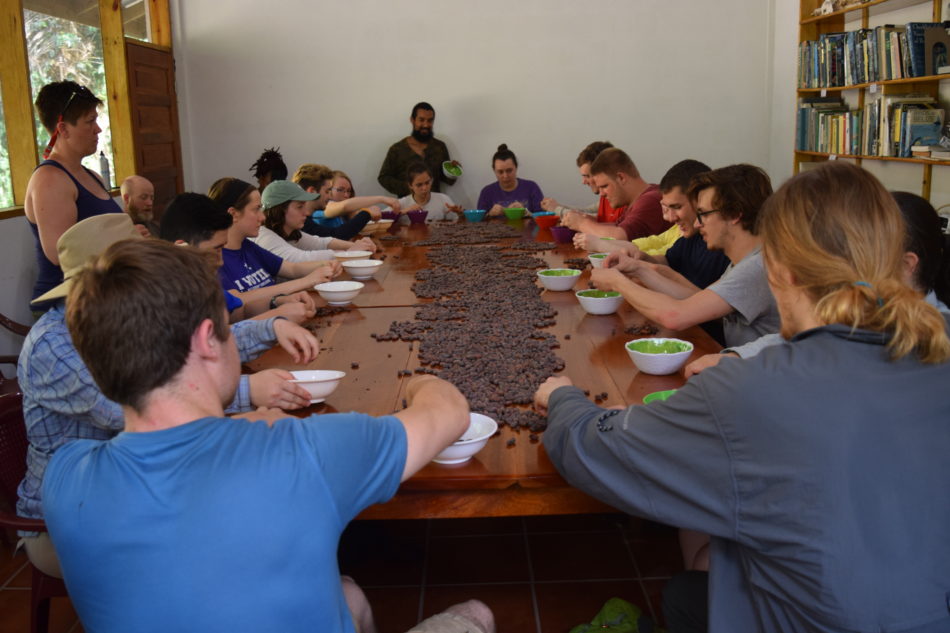Birds, Chocolate, Forests, and Allegheny College

Allegheny College students pose for a photo at BFREE during the Birds, Chocolate, Forest Field Course in May 2019.

Written By, Beth Choate, Ph.D.
Associate Professor, Environmental Science and Sustainability
Allegheny College
BFREE’s Birds, Chocolate and Forests course provided students with a real life example of the complexities of conservation within the rainforests of southern Belize. Through interactive demonstrations and presentations, field research and experiments, day-excursions, conversations with all members of the BFREE team, and exploring the surrounding environment, students developed an understanding of the relationships not only between birds, chocolate, and forests, but people as well. The complicated web of relationships that exists among efforts to conserve biodiversity and livelihoods is something we speak often about in our Environmental Science and Sustainability courses at Allegheny College. In our introductory course for the major, we make it clear to students that you will not find the solutions to environmental problems in a book. Each problem is unique and requires individuals who can critically examine the issue to devise a unique and thoughtful solution. The 2-week experience with our BFREE guides was a perfect compliment to this concept. In a country where people rely on the natural resources of the surrounding forests to provide them with medicines, food, and fertile land for agriculture, it quickly became clear that you couldn’t simply tell people to stop using the forest. BFREE provides a unique solution: conserve the forest and grow a cash crop within the understory in an effort to conserve birds and other organisms, as well as livelihood. Jacob spoke with us about ongoing efforts to ensure that methods of cacao agro-forestry were fully understood so that local farmers could create successful farms and provide for their families demonstrating that BFREE is thinking about the sustainability of their program. The complexities of conservation also became apparent when learning about the Hicatee turtle, talking with Ernesto about traditional Mayan culture, and spending time on the coast in Placencia. This course was the perfect compliment to what we are saying in the classroom:
solving environmental problems is complicated.

In order to solve those complicated problems, one must be curious, flexible, and have excellent communication and intercultural skills. Many of our students had minimal experience traveling outside of the US and very few had been submerged in a culture different to their own. When students are outside of their comfort zone, they are forced to adapt and push their own limits. It is through experiencing this unknown, whether it be using compost toilets, learning to fall asleep to the sound of howler monkeys, or discovering just how difficult harvesting cacao in the jungle can be, students were forced to overcome new challenges. After reading their final journal entries, many of our students surprised themselves. They learned that they are capable of much more than they ever thought possible. Through conversations with the BFREE staff and local Belizeans we met during the trip, worldviews were expanded and communication skills improved. For many students, this was the highlight of the trip, getting to know individuals with completely different life experiences than themselves. From an educational perspective, this is impossible to teach in a classroom or while simply touring around. BFREE provided an excellent experience for students to be completely submerged in the Belize culture, all while learning in a completely new environment.


